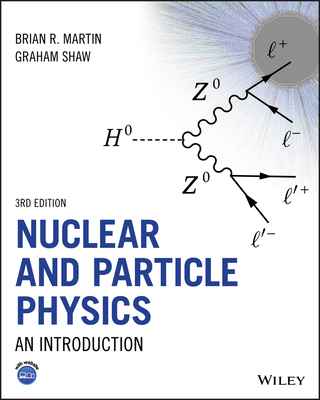Introduction to Machine Learning with Python: A Guide for Data Scientists (Paperback)
暫譯: 使用 Python 的機器學習入門:數據科學家的指南 (平裝本)
Andreas C. Müller, Sarah Guido
- 出版商: O'Reilly
- 出版日期: 2016-11-15
- 定價: $2,180
- 售價: 9.0 折 $1,962
- 語言: 英文
- 頁數: 400
- 裝訂: Paperback
- ISBN: 1449369413
- ISBN-13: 9781449369415
-
相關分類:
Machine Learning
-
相關翻譯:
精通機器學習|使用 Python (Introduction to Machine Learning with Python: A Guide for Data Scientists) (繁中版)
Python機器學習基礎教程 (簡中版)
立即出貨 (庫存 < 3)
買這商品的人也買了...
-
 $3,325The Elements of Statistical Learning: Data Mining, Inference, and Prediction, 2/e (Hardcover)
$3,325The Elements of Statistical Learning: Data Mining, Inference, and Prediction, 2/e (Hardcover) -
 Data Science and Big Data Analytics: Discovering, Analyzing, Visualizing and Presenting Data (Hardcover)
Data Science and Big Data Analytics: Discovering, Analyzing, Visualizing and Presenting Data (Hardcover)$2,250$2,138 -
 精通 Python|運用簡單的套件進行現代運算 (Introducing Python: Modern Computing in Simple Packages)
精通 Python|運用簡單的套件進行現代運算 (Introducing Python: Modern Computing in Simple Packages)$780$616 -
 完整學會 Git, GitHub, Git Server 的24堂課
完整學會 Git, GitHub, Git Server 的24堂課$360$284 -
 Python 機器學習 (Python Machine Learning)
Python 機器學習 (Python Machine Learning)$580$452 -
.jpg) Python + Spark 2.0 + Hadoop 機器學習與大數據分析實戰
Python + Spark 2.0 + Hadoop 機器學習與大數據分析實戰$680$530 -
 網站擷取|使用 Python (Web Scraping with Python: Collecting Data from the Modern Web)
網站擷取|使用 Python (Web Scraping with Python: Collecting Data from the Modern Web)$580$458 -
 $250Python 機器學習及實踐 --- 從零開始通往 Kaggle 競賽之路
$250Python 機器學習及實踐 --- 從零開始通往 Kaggle 競賽之路 -
 今天不學機器學習,明天就被機器取代:從 Python 入手+演算法
今天不學機器學習,明天就被機器取代:從 Python 入手+演算法$590$502 -
 Deep Learning (Hardcover)
Deep Learning (Hardcover)$1,650$1,617 -
 Python 自動化的樂趣|搞定重複瑣碎 & 單調無聊的工作 (中文版) (Automate the Boring Stuff with Python: Practical Programming for Total Beginners)
Python 自動化的樂趣|搞定重複瑣碎 & 單調無聊的工作 (中文版) (Automate the Boring Stuff with Python: Practical Programming for Total Beginners)$500$395 -
深度學習快速入門 — 使用 TensorFlow (Getting started with TensorFlow)
$360$281 -
 演算法技術手冊, 2/e (Algorithms in a Nutshell: A Practical Guide, 2/e)
演算法技術手冊, 2/e (Algorithms in a Nutshell: A Practical Guide, 2/e)$580$458 -
 $990Hands-On Machine Learning with Scikit-Learn and TensorFlow (Paperback)
$990Hands-On Machine Learning with Scikit-Learn and TensorFlow (Paperback) -
 圖解雲端技術|基礎架構x運作原理 x API
圖解雲端技術|基礎架構x運作原理 x API$480$379 -
 Effective C# 中文版 | 寫出良好 C# 程式的 50個具體做法, 3/e (Effective C# : 50 Specific Ways to Improve Your C#(Covers C# 6.0), 3/e)
Effective C# 中文版 | 寫出良好 C# 程式的 50個具體做法, 3/e (Effective C# : 50 Specific Ways to Improve Your C#(Covers C# 6.0), 3/e)$450$356 -
 Effective SQL 中文版 | 寫出良好 SQL 的 61個具體做法 (Effective SQL : 61 Specific Ways to Write Better SQL)
Effective SQL 中文版 | 寫出良好 SQL 的 61個具體做法 (Effective SQL : 61 Specific Ways to Write Better SQL)$450$356 -
 TensorFlow + Keras 深度學習人工智慧實務應用
TensorFlow + Keras 深度學習人工智慧實務應用$590$460 -
 寫程式前就該懂的演算法 ─ 資料分析與程式設計人員必學的邏輯思考術 (Grokking Algorithms: An illustrated guide for programmers and other curious people)
寫程式前就該懂的演算法 ─ 資料分析與程式設計人員必學的邏輯思考術 (Grokking Algorithms: An illustrated guide for programmers and other curious people)$390$308 -
 $2,070Machine Learning with Python Cookbook: Practical Solutions from Preprocessing to Deep Learning
$2,070Machine Learning with Python Cookbook: Practical Solutions from Preprocessing to Deep Learning -
 Python 資料分析, 2/e (Python for Data Analysis: Data Wrangling with Pandas, NumPy, and IPython, 2/e)
Python 資料分析, 2/e (Python for Data Analysis: Data Wrangling with Pandas, NumPy, and IPython, 2/e)$880$695 -
 Nuclear and Particle Physics: An Introduction
Nuclear and Particle Physics: An Introduction$3,380$3,211 -
 $2,499Practical Statistics for Data Scientists: 50+ Essential Concepts Using R and Python, 2/e (Paperback)
$2,499Practical Statistics for Data Scientists: 50+ Essential Concepts Using R and Python, 2/e (Paperback) -
 $2,470Linear Algebra and Optimization for Machine Learning: A Textbook (Hardcover)
$2,470Linear Algebra and Optimization for Machine Learning: A Textbook (Hardcover) -
 Quantum Machine Learning with Python: Using Cirq from Google Research and IBM Qiskit
Quantum Machine Learning with Python: Using Cirq from Google Research and IBM Qiskit$2,040$1,938
相關主題
商品描述
Description
Machine learning has become an integral part of many commercial applications and research projects, but this field is not exclusive to large companies with extensive research teams. If you use Python, even as a beginner, this book will teach you practical ways to build your own machine learning solutions. With all the data available today, machine learning applications are limited only by your imagination.
You’ll learn the steps necessary to create a successful machine-learning application with Python and the scikit-learn library. Authors Andreas Müller and Sarah Guido focus on the practical aspects of using machine learning algorithms, rather than the math behind them. Familiarity with the NumPy and matplotlib libraries will help you get even more from this book.
With this book, you’ll learn:
- Fundamental concepts and applications of machine learning
- Advantages and shortcomings of widely used machine learning algorithms
- How to represent data processed by machine learning, including which data aspects to focus on
- Advanced methods for model evaluation and parameter tuning
- The concept of pipelines for chaining models and encapsulating your workflow
- Methods for working with text data, including text-specific processing techniques
- Suggestions for improving your machine learning and data science skills
商品描述(中文翻譯)
描述
機器學習已成為許多商業應用和研究項目的不可或缺的一部分,但這個領域並不僅限於擁有龐大研究團隊的大公司。如果您使用 Python,即使是初學者,本書將教您實用的方法來構建自己的機器學習解決方案。隨著當今可用數據的增多,機器學習應用的限制僅在於您的想像力。
您將學習使用 Python 和 scikit-learn 庫創建成功的機器學習應用所需的步驟。作者 Andreas Müller 和 Sarah Guido 專注於使用機器學習算法的實際方面,而不是其背後的數學。熟悉 NumPy 和 matplotlib 庫將幫助您從本書中獲得更多收益。
通過本書,您將學習:
- 機器學習的基本概念和應用
- 廣泛使用的機器學習算法的優勢和缺點
- 如何表示機器學習處理的數據,包括應該關注的數據方面
- 模型評估和參數調整的進階方法
- 用於鏈接模型和封裝工作流程的管道概念
- 處理文本數據的方法,包括特定於文本的處理技術
- 改進您的機器學習和數據科學技能的建議













